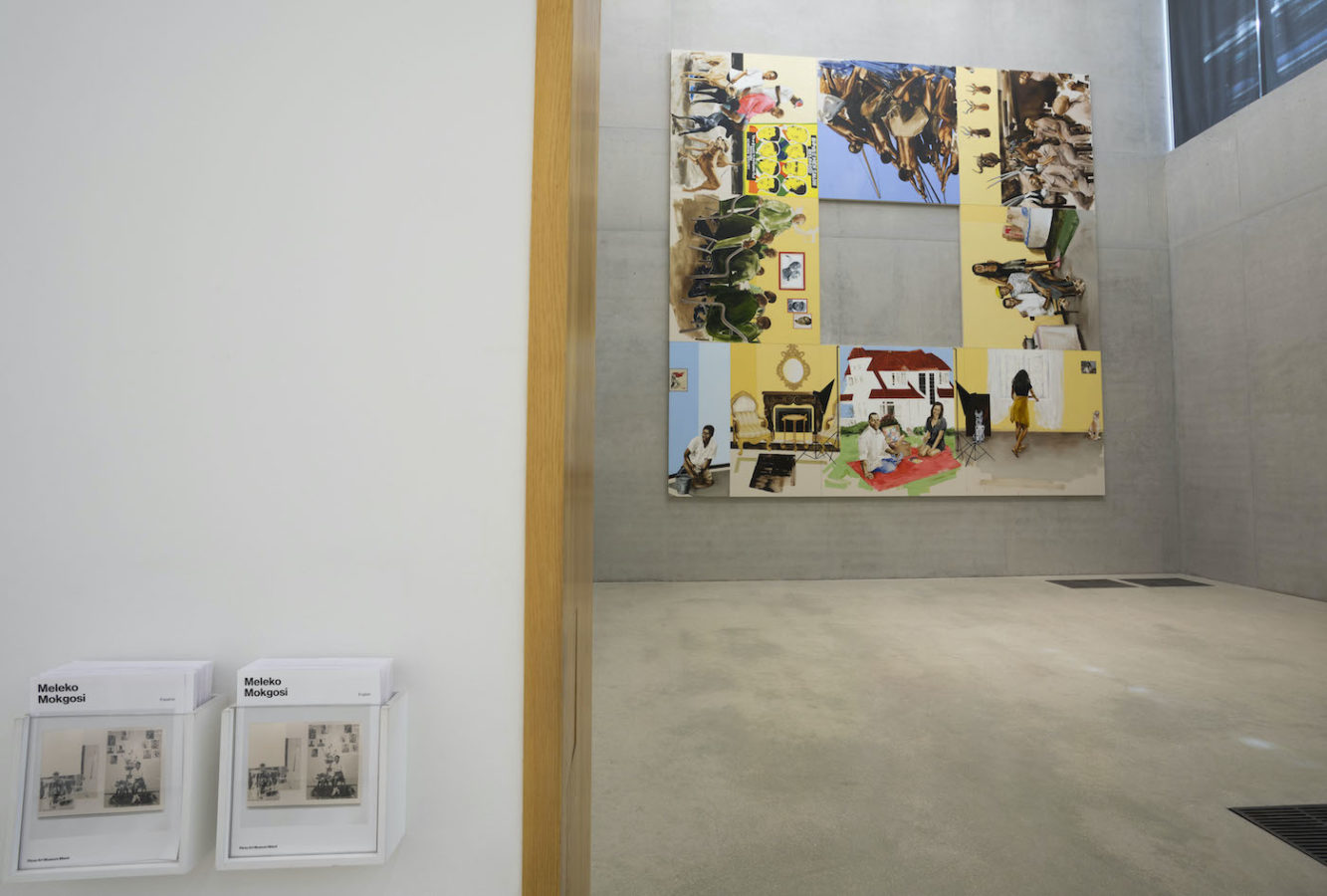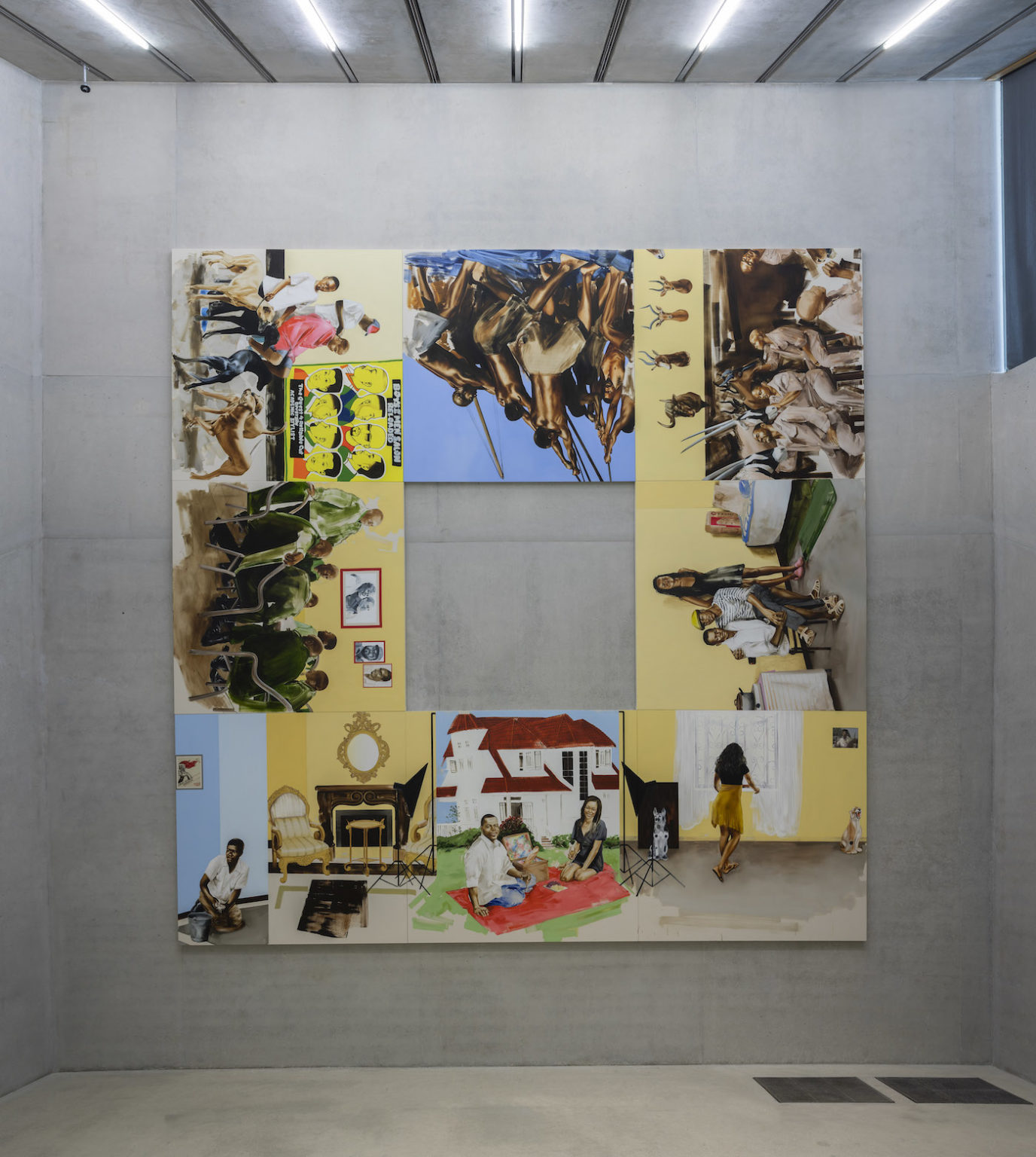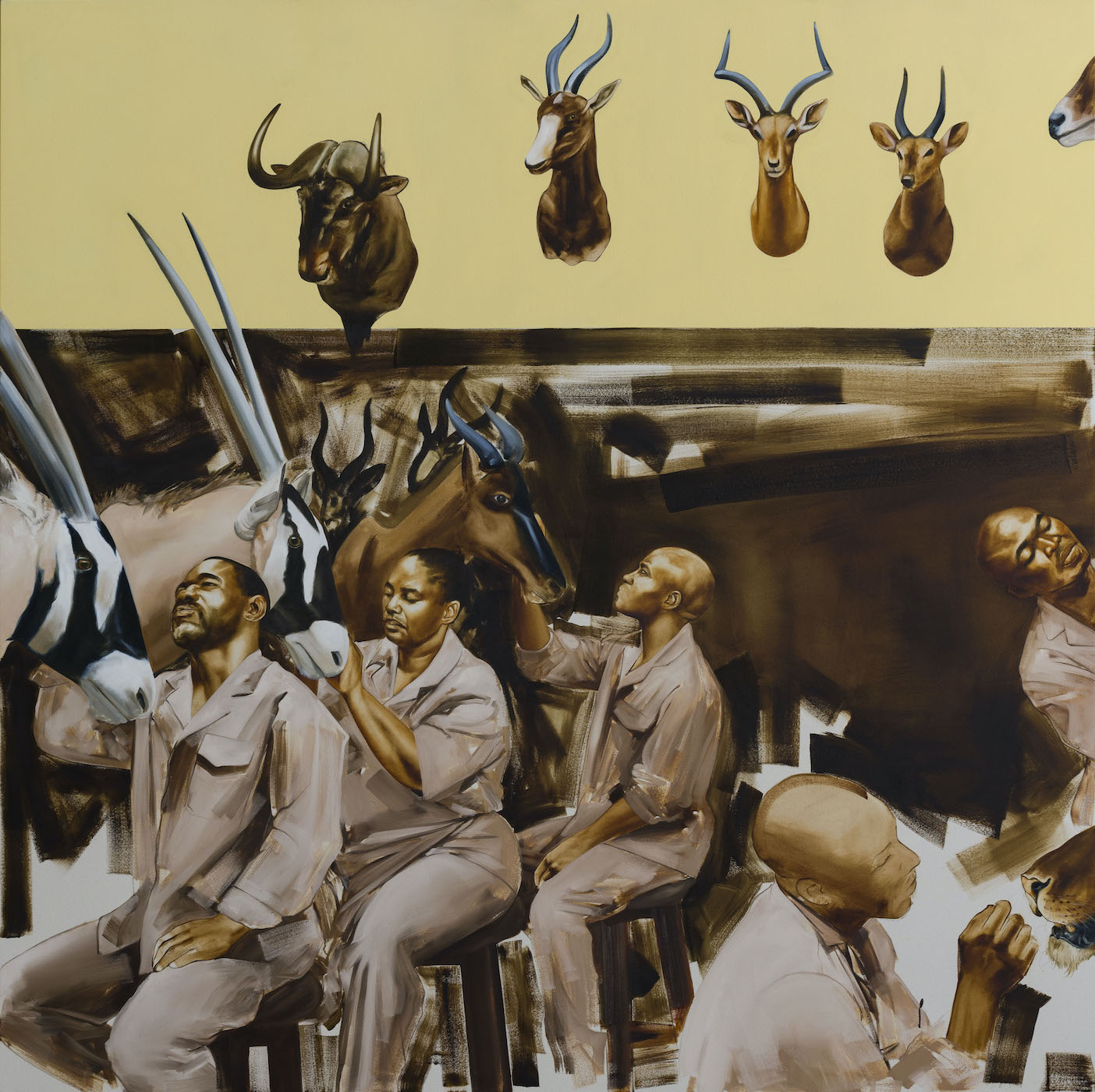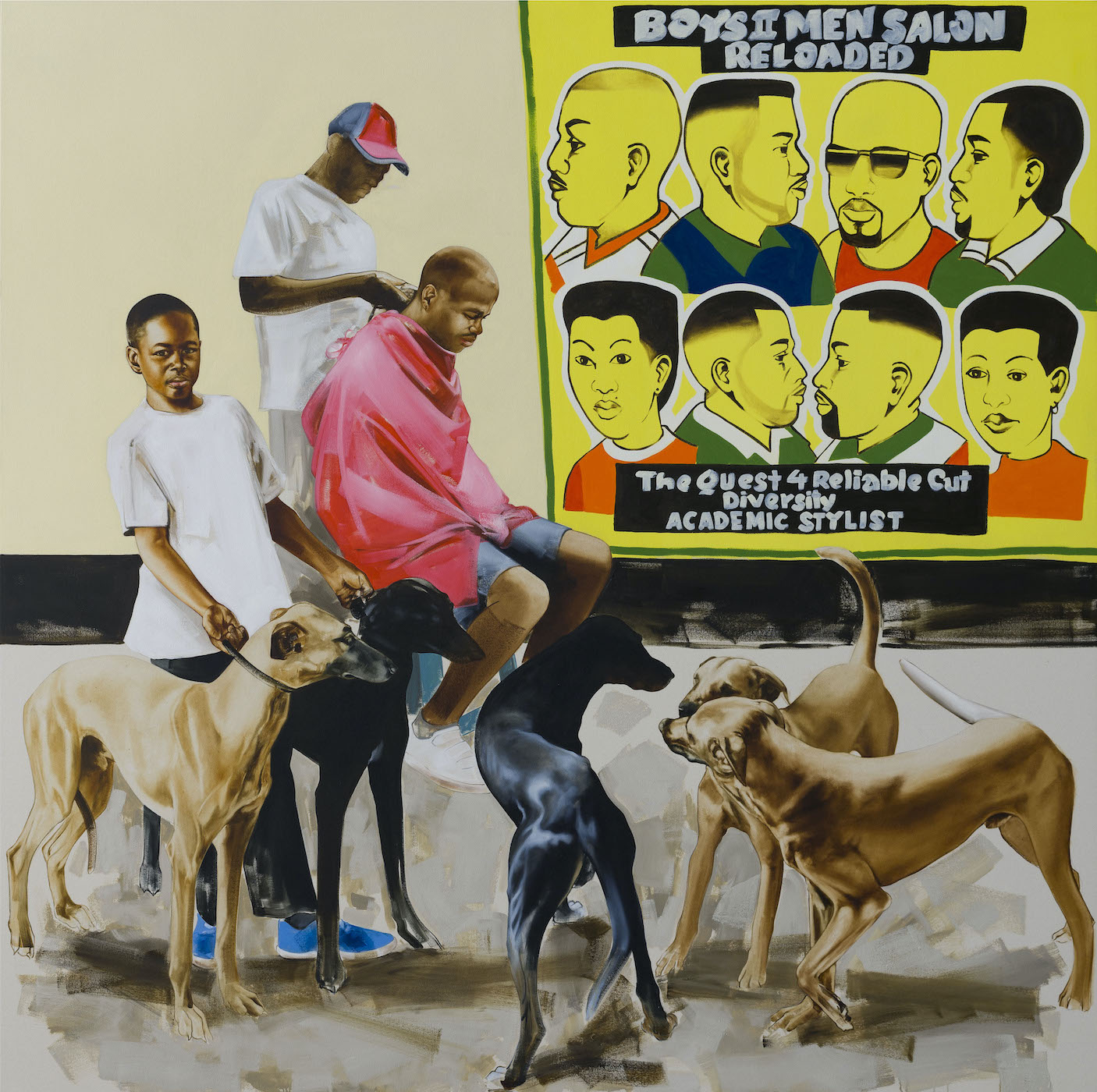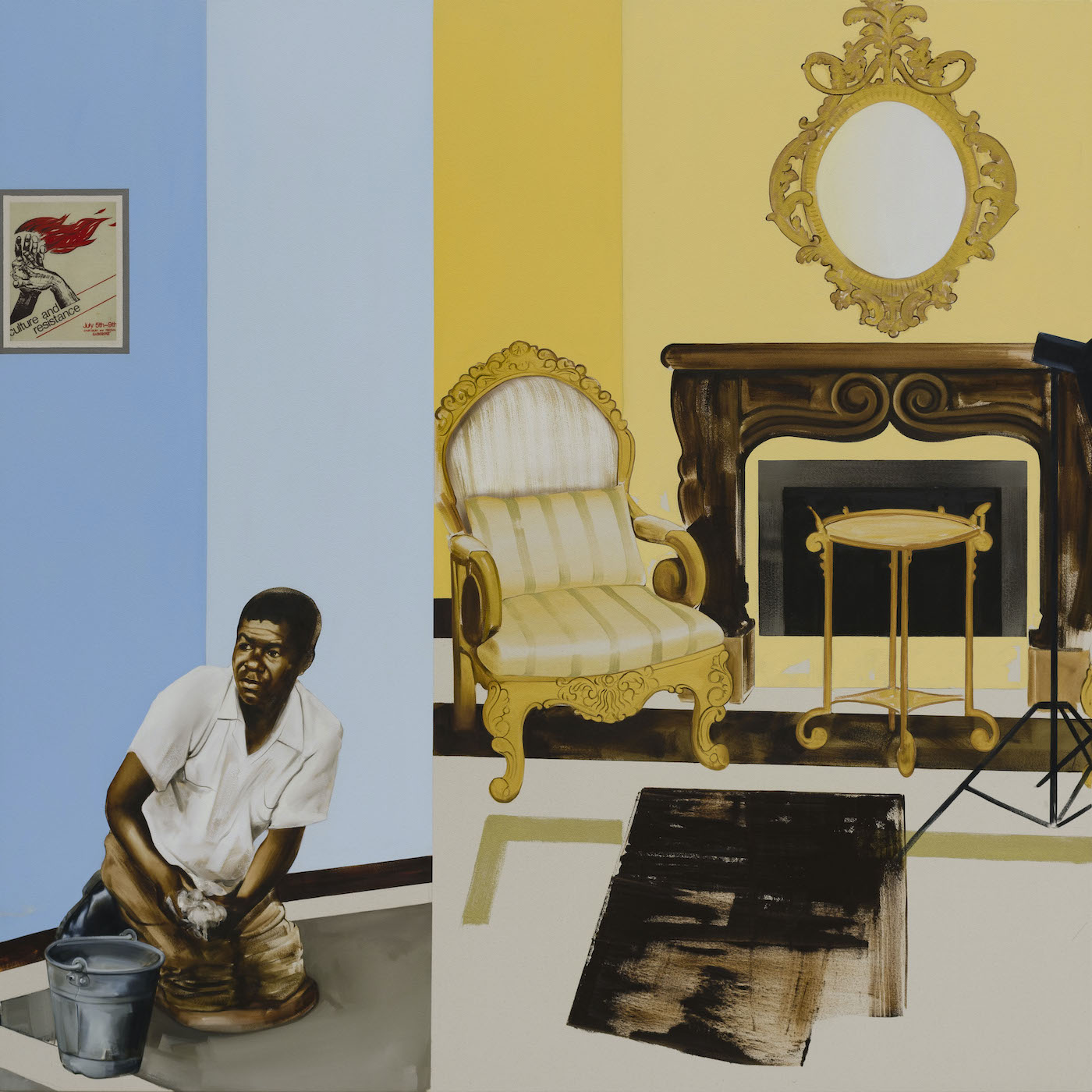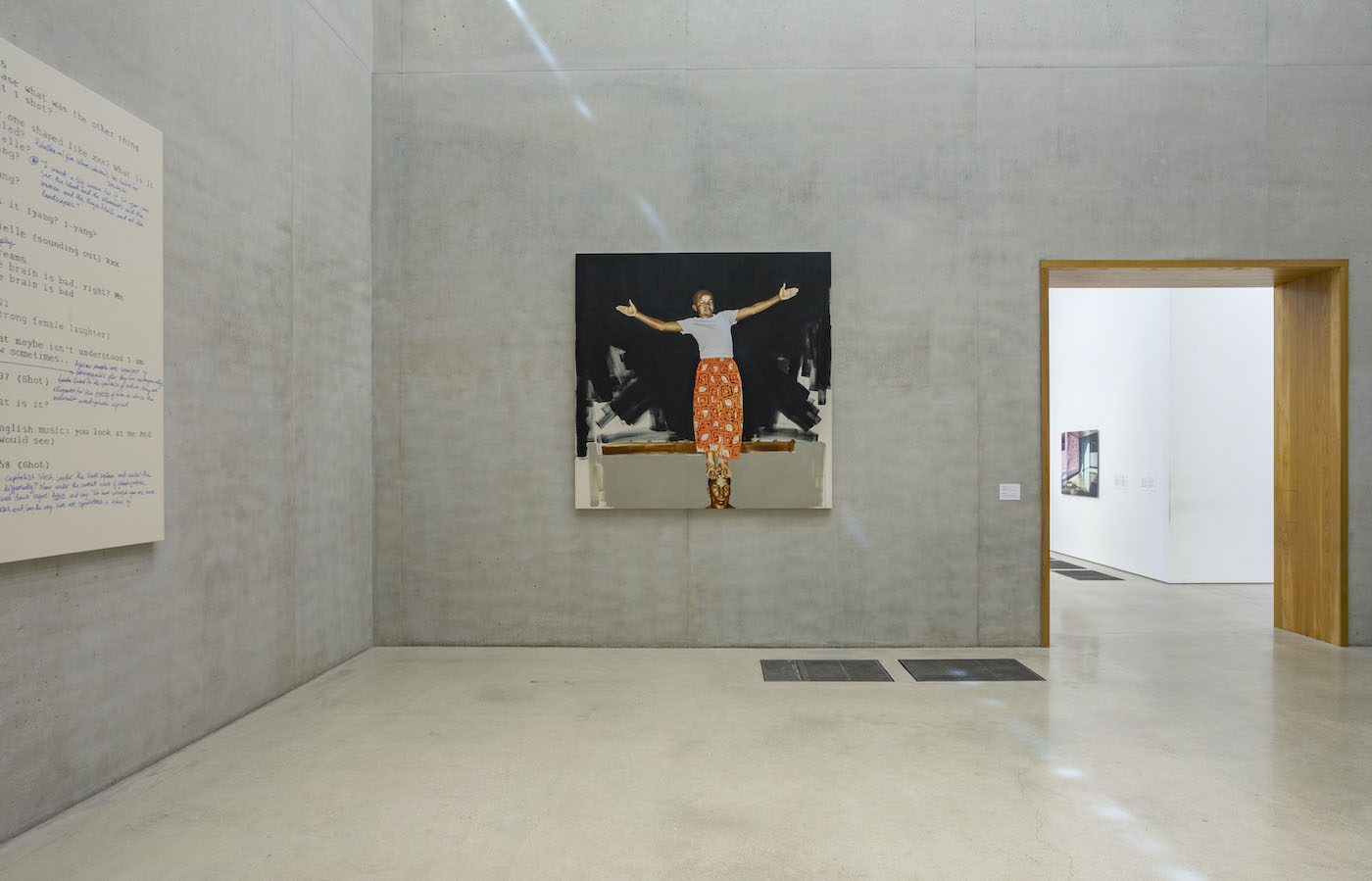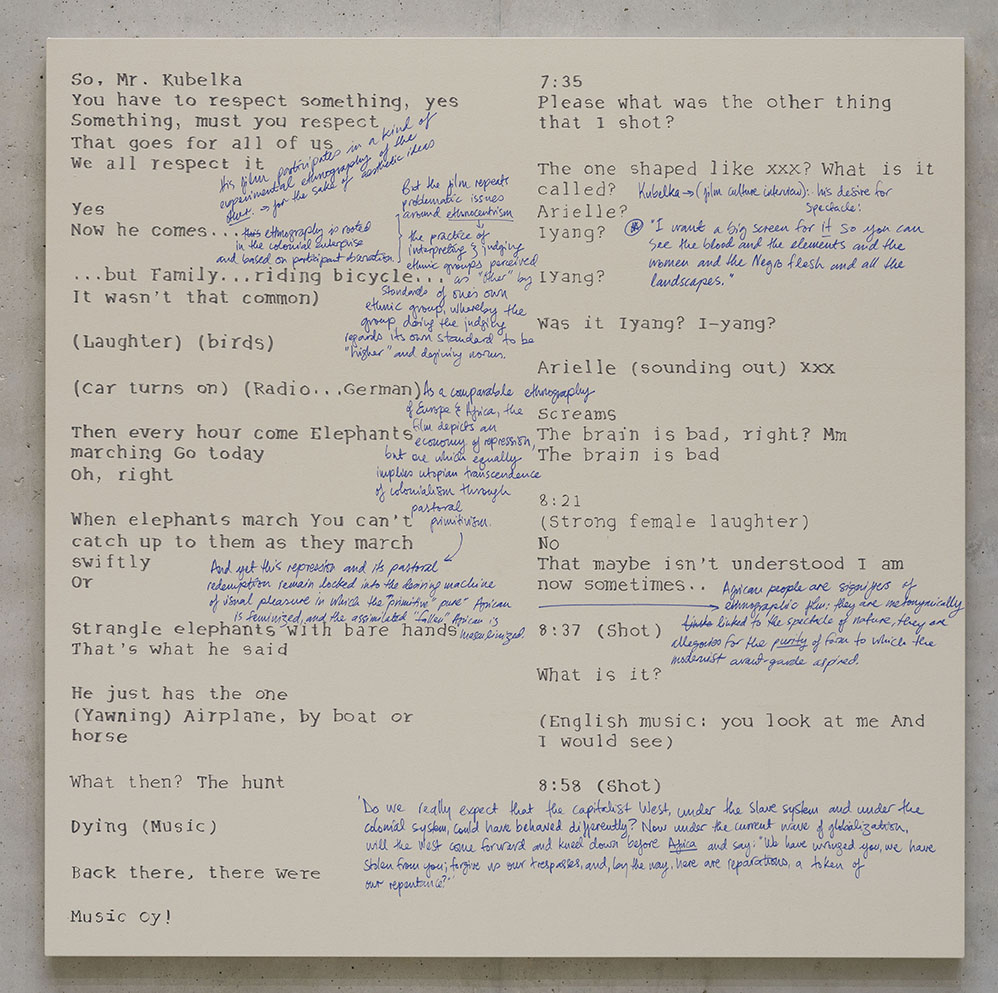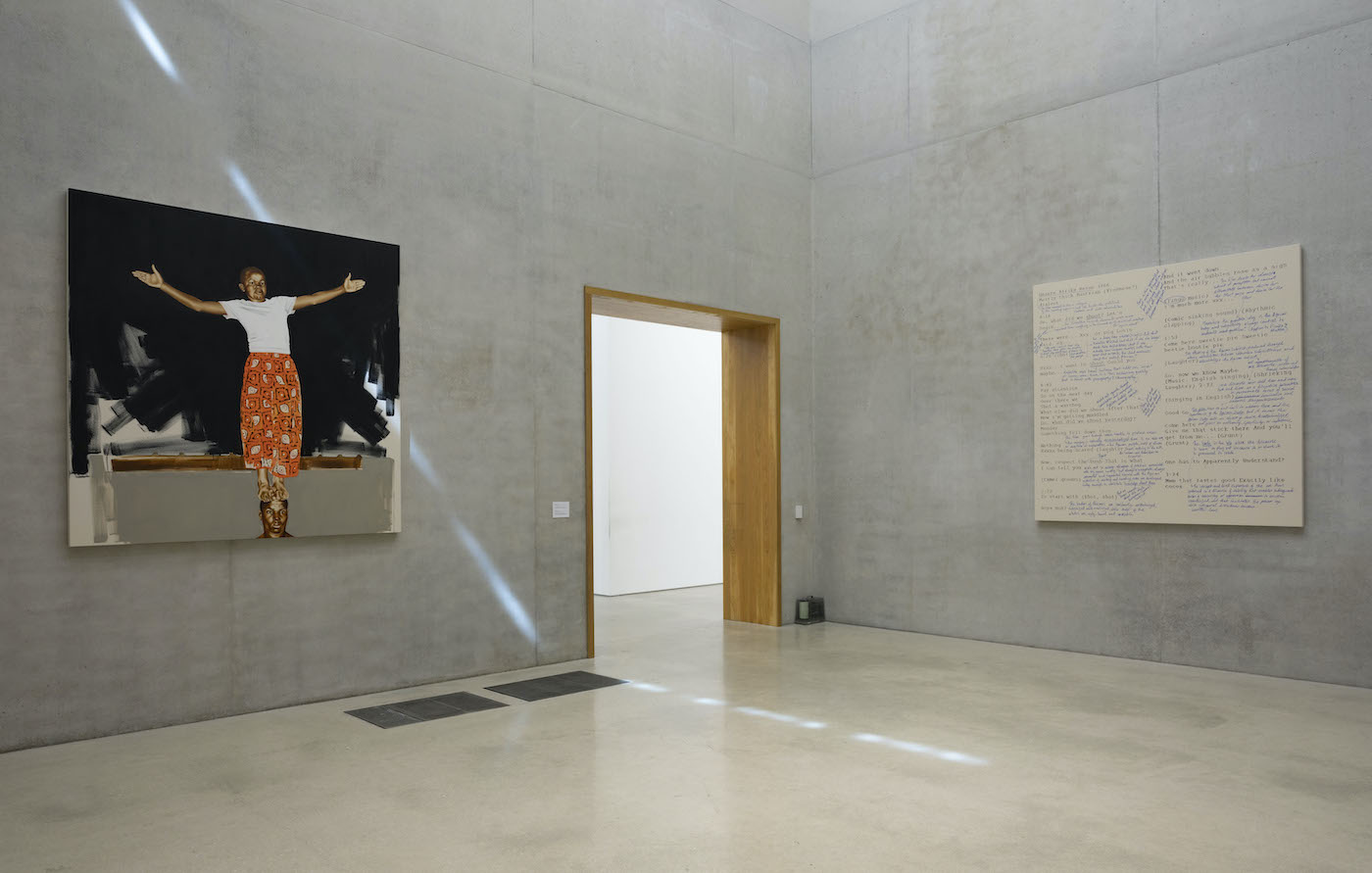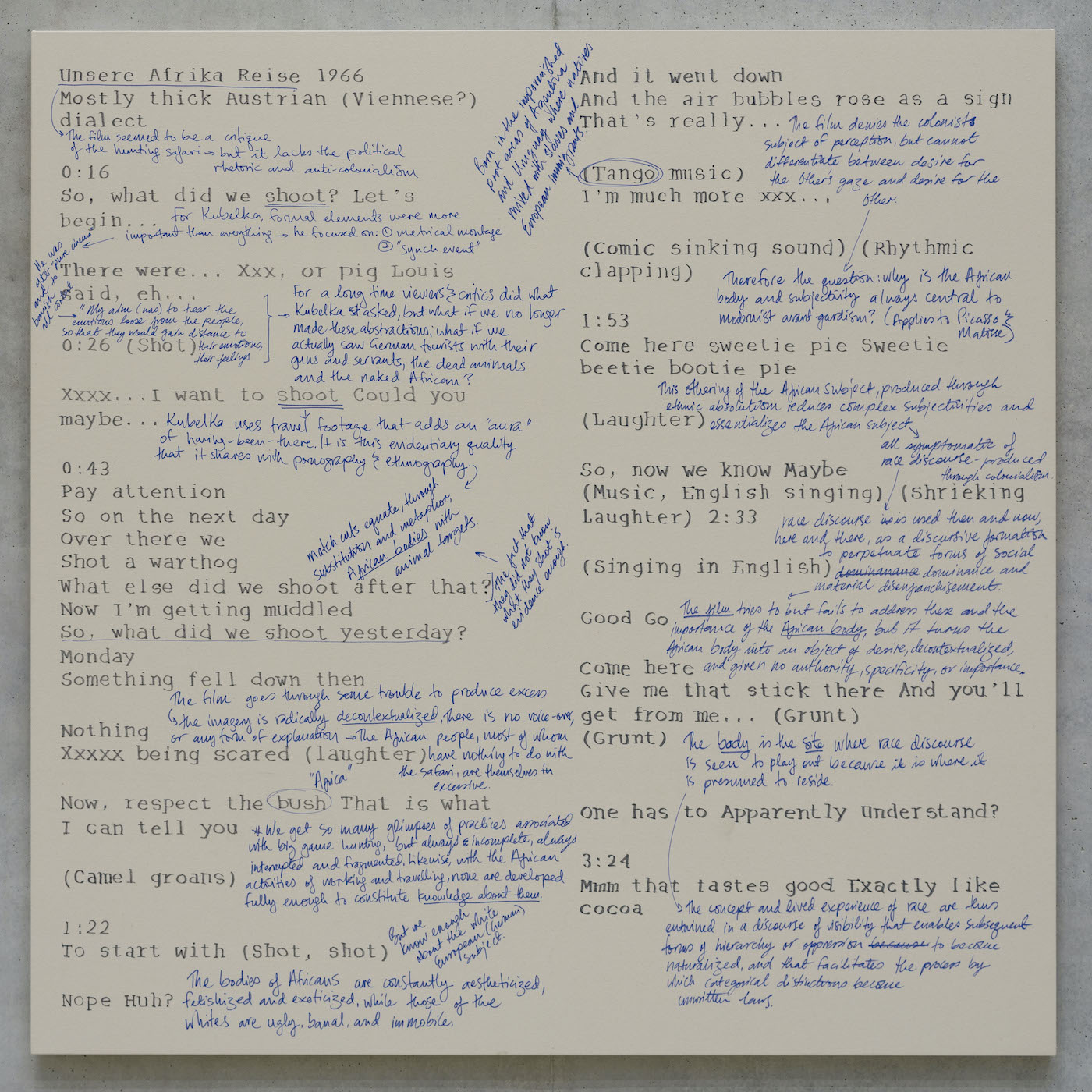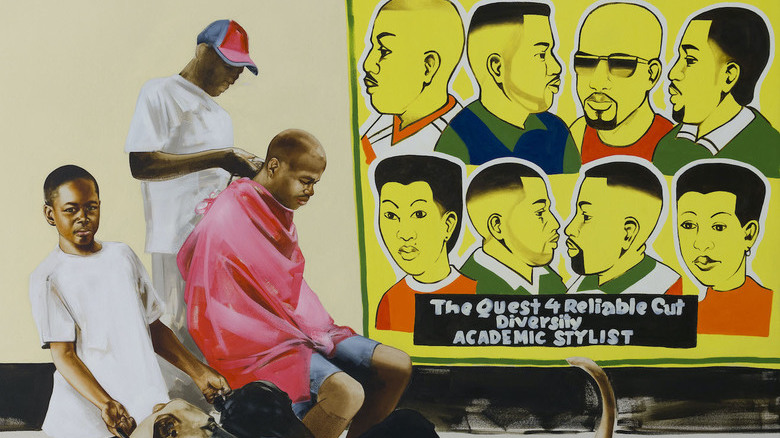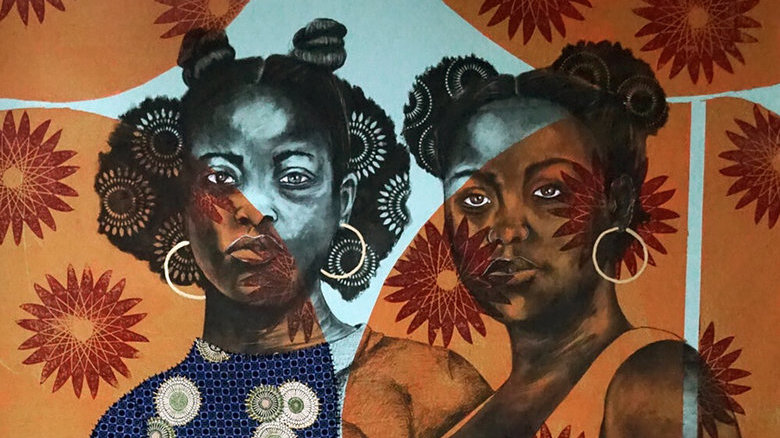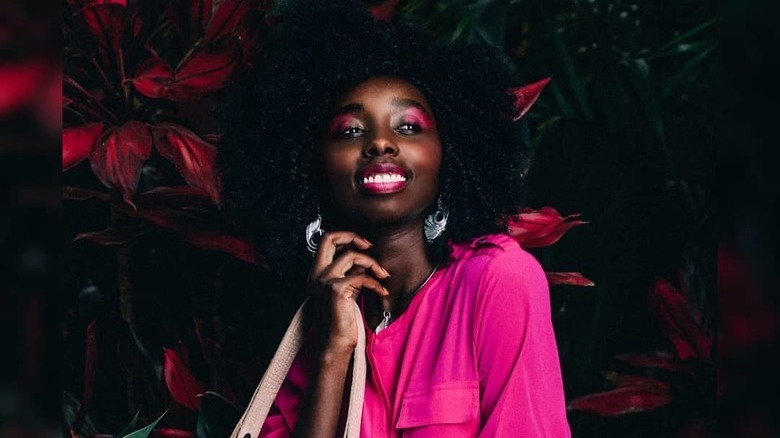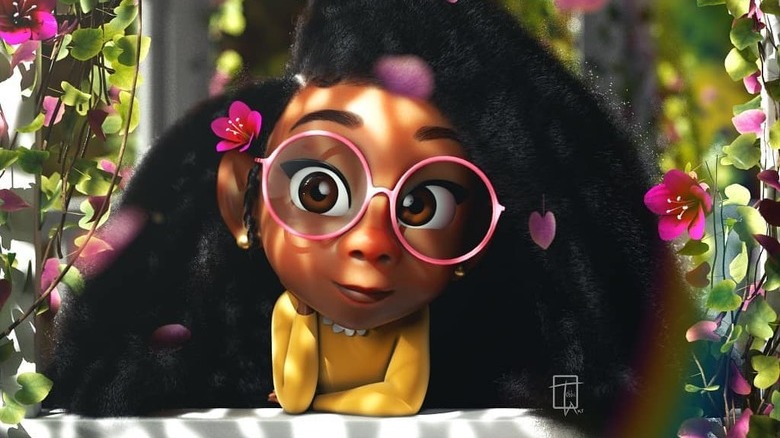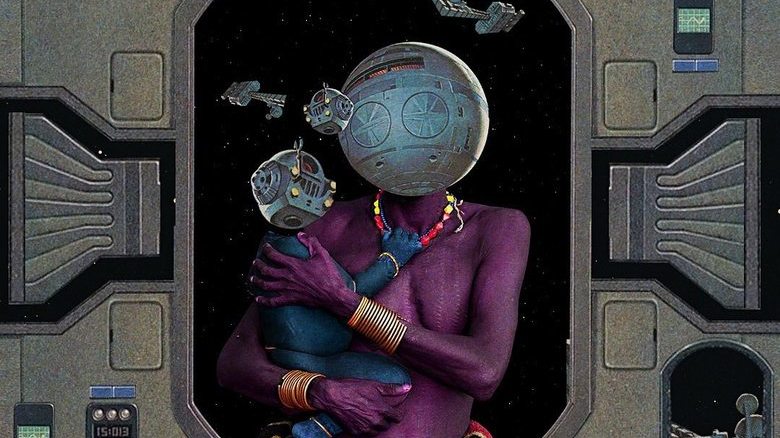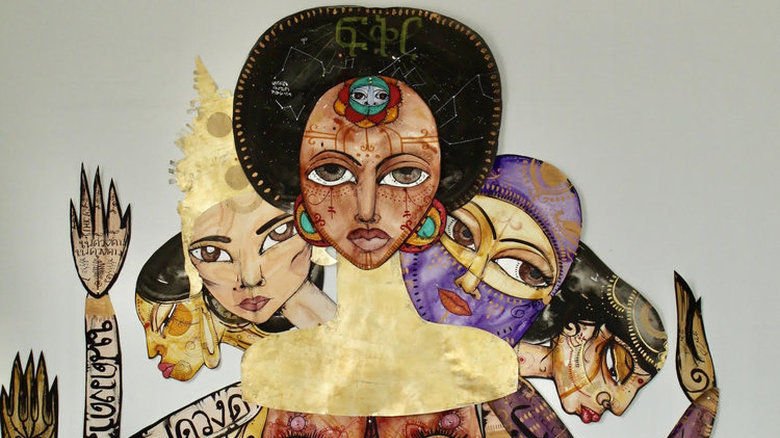Meleko Mokgosi: Your Trip to Africa
Meleko Mokgosi (b. 1981, Francistown, Botswana; lives in New York) wields the traditions of Western European painting to deliver sharp political critiques relating to the postcolonial condition. Combining a high degree of painterly skill with a poetic, open-ended semiotic approach and a penchant for deep archival research, the artist shines light on some of the complex socioeconomic dynamics that animate contemporary southern Africa. Pérez Art Museum Miami presents a large-scale, newly commissioned work by Mokgosi created for the museum’s distinctive 30-foot double-height project gallery.

The project centers on the 1966 film Unsere Afrikareise (Our Trip to Africa) by the seminal filmmaker Peter Kubelka. Kubelka is widely recognized as one of the progenitors of the Structural film movement, which attempts to distill the cinematic experience to its purest material form. The film came about when Kubelka was invited by a wealthy Austrian family to record their safari trip through Africa. The strange, intense, grotesque work that resulted defies description. As the Europeans engage in various leisure activities (swimming, sunbathing, teasing their native attendants, and, of course, hunting), the action is intercut with fleeting glimpses of African passersby engaged in their daily labor (carrying water, pounding a mortar with a pestle). Kubelka punctuates these sequences with the repetitive, gruesome spectacle of the Austrians killing and skinning an elephant, a zebra, a lion, a giraffe, and other wild animals. In the words of film critic Catherine Russell, “The film was commissioned to be a mirror of sorts by the Austrian hunters whom Kubelka accompanied to Africa, but it becomes a fun-house mirror, horrifically distorting their image.” Kubelka compressed hours and hours of footage into a 13-minute barrage of imagery with no apparent through line, no sense of cause and effect, and no beginning, middle, or end, providing the spectator with no means of cognitive entry or exit. As in previous works, Kubelka disrupts the synchronization of sound and image, repeatedly employing the sound of cackling laughter at incongruous moments. At times, this laughter has the effect of belittling the African subjects, while at others it interacts with the scenes of violence against the animals to generate a cloud of sardonic irony.
